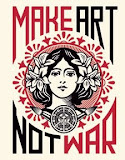
A suprisingly fresh Hungarian Folk-rock album with some balkan influences, lots of instruments, virtuoso solos and always a tight sound with well-crafted songs taking Folk music as a base and turning it into a spacey Progressive sound with heavy Guitar. You get Gypsy Violin, Zither, Bagpipes and Flute layered with Space drum, scorching Guitar and Bass. Though it’s from 1984, this is excellent all the way and comes highly recommended!
01. Zöld szemű rózsa / Rose of Green Eyes
02. Védelmezz! / Protect Me!
03. Egy ágyon egy kenyéren / Common Bed, Common Bread
04. Trák attak / Thracian Attack
05. Alig volt zöld / It Hardly Was Green
06. Ne sírj / Don't Cry
07. Ilju Haramia / Ilyu Highwayman
08. Ha meghalok / If I Die
09. Gyere ki te gyöngyvirág / Lily-of-the Valley
10. Adjon az Isten / May the Lord Provide
11. Macedon Expressz / Macedonian Express (Instrumental)
12. Jöjj be szobámba / Come in My Bower
Link
pass: bluesmen-worldmusic.blogspot.com
Címkék: Ethno-rock, Hungarian, Kormorán

The ensemble LA MINOR was founded in summer 2000.
The ensemble performs in the style of street chanson with Russian folk, ska, jazz and Klezmer (Odessa style) influence. Once the style of LA MINOR was named as “Odessa beats”. It s the most precise determination in which LA MINOR live, create and perform.
The music of LA MINOR enriched by bayan (Russian accordion), saxophone, balalayka and tuba brings you back to the atmosphere of 20-40-es Soviet years and reminds the soundtrack to good old films about gangsters, tragic love and great swindlers of that time. Happy and nostalgic in the same time their music will not leave you untouched. Teeming with thieves and policemen, prostitutes and undercover agents, La Minor's Soviet-era street songs about the urban underworld strike an all-too-familiar chord with local art-house fans. But as the St. Petersburg band has learned on its frequent trips abroad, foreign audiences bring their own life experiences to the music.The collective consists of professional musicians.
Right from the outset, the voclaist Slava Shalygin set out to emulate urban folk guru Arkady Severny. Severny's genre, now euphemistically known as Russian chanson, surfaced from the music underground after the Soviet Union's collapse, and has since become ubiquitous in popularized renditions on radio stations, at cafes and in taxicabs. But La Minor returns to the music's roots, with the sophisticated arrangements and deadpan delivery that originally marked the gangster sound.
La Minor is known for its careful choice of material, and for ignoring the standards in place of obscure gems of folk poetry.
01. Aleshka zharil na bajane
02. Kokain
03. Devushka v Plat'e iz Sitca
04. Postoj, Parovo
05. A Ja Hozhu Pohodkoju Pochtennoju
06. Val's
07. Nikolaevskij Tramvaj
08. Murka
09. EvrejSKA
10. Istorija Studenta
11. Bros', Zhalet' ne Stanu
12. Gorod Anapa
13. U Son'ki Imeniny
14. Kakim Ty Menja Jadom Napoila
15. Mama, Mama
16. Konfetki-Prjanichki
Slava Shalygin – vocal
Igor Boytsov – saxophone
Sanja Ezhov – bayan (Russische accordion ), back-vocal
Lyonya Agafonov – double bass
Vova Uspensky - gitara, banjo
Zhenja Bobrov – drums
Link

The band was founded 1995 in Berlin by Christopher Blenkinsop (bouzouki, ukulele & vocals), Carsten Wegener (bass), Lutz “Lüül” Ulbrich (banjo & guitar), Kristin “Kiki” Sauer (accordion & vocals) and Reinhard "Koma" Lüderitz (bagpipes). They first used the name 17 Hippies in the fall of that year.
In 1996 they began to organize their own series of free concerts called Hippie Haus Tanz (Hippie House Dance). At this time Antje Henkel (clarinet), Elmar Gutmann (trumpet), and Ulrike “Rike” Lau (cello) joined the band. In 1997 Henry Notroff (clarinet) and Dirk Trageser (guitar & vocals) also were added, and live recordings of different concerts and rehearsal room sessions were compiled into their first CD Rock'n'Roll 13. In 1998 they played at the SXSW Festival in Austin, Texas and then toured in Texas and Louisiana. Later that year Uwe Langer (trombone) joined the band and they played in Paris for the first time.
They established their own record label and in 1999 released their second CD Wer ist das? (Who is that?). The French label Buda Musique released a compilation of both CD’s called Berlin Style, which was then also released in Italy. Volker "Kruisko" Rettmann (accordion) joined the band.
In 2001 the band wrote the score for the German movie Grill Point (Halbe Treppe) by Andreas Dresen and they performed in a cameo role in the film. A tour of Budapest, Prague, Vienna and France took place, and the second French album Sirba was released, featuring their first radio hit "Marlène". Kerstin Kaernbach (violin) also was added to the band lineup. Their first studio album Ifni was released in 2004. An extensive tour of Germany, Switzerland, the Netherlands, Belgium, Hungary, the Czech Republic, Morocco and France ensued. Daniel Friederichs (violin) became the last member to join the current lineup. In 2006 the band made a tour of Japan and Spain and composed the music for the play Kasimir and Karoline, staged at the Deutsches Theater in Berlin.
Their style is a unique mix of Eastern European melodies and rhythms, with French chanson and American folk music. They sing mainly in German, English and French. In France their music is known as Berlin Style.
01. Die Oros
02. Mad Bad Cat
03. Isa Auf Der Brucke
04. Ershter Tants
05. Eine Sirba
06. Marlene
07. Elf-Achtel
08. Gelb Zwo Drei
09. Tanz Des Bauem
10. Saragina Rumba
11. Chassidic Song
12. Sandgate
13. Fahrstuhimusik
14. Vallee De Sira
15. Freilachs - (live)
16. Gator's Grin
17. Kilomeyke
18. E Major
Link
pass: bluesmen-worldmusic.blogspot.com
Címkék: 17 Hippies, Germany, World
























